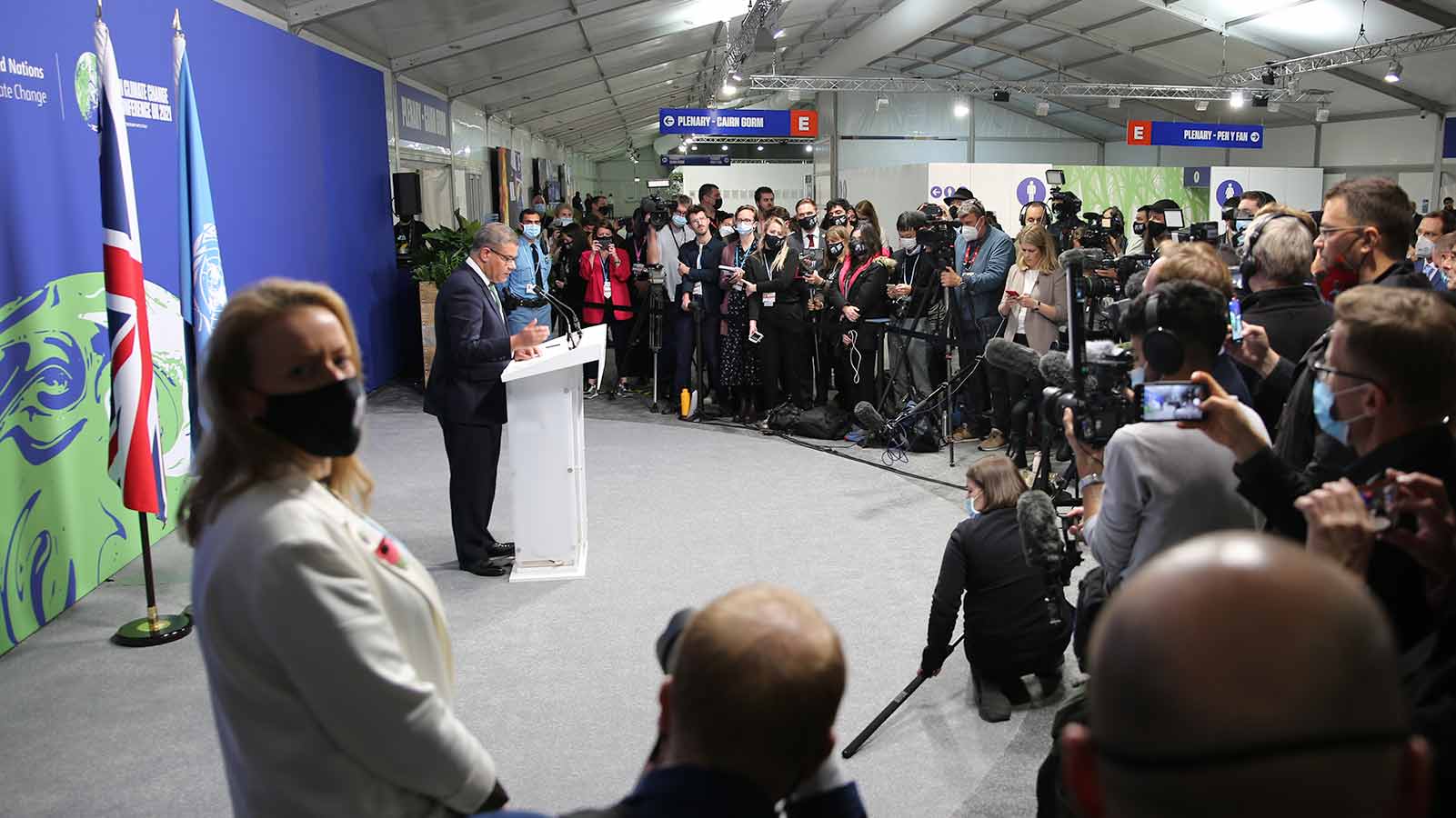Two weeks of intense negotiations, which started with world leaders announcing a range of new commitments to climate action, have culminated in the ‘Glasgow Climate Pact’, which falls short of bridging the gap to 1.5°C, but at least keeps on pressure on countries to improve their short term targets.
Reactions to the new ‘pact’ have been mixed, with some praising the outcome for establishing an expectation that countries will bring stronger 2030 targets to next year’s climate talks, and for unprecedented language around the “phase down” of coal use and fossil fuel subsidies.
Others have criticised the Glasgow agreements for failing to deliver on promised financial support for developing countries to respond to the impacts of climate change and the continued efforts of some countries countries to water down global cooperation to cut emissions.
While United Nations secretary general António Guterres praised the efforts of the UK hosts of COP26, he described the final outcomes as reflecting a “compromise”.
“They reflect the interests, the conditions, the contradictions and the state of political will in the world today,” Guterres said. “They take important steps, but unfortunately the collective political will was not enough to overcome some deep contradictions.”
“As I said at the opening, we must accelerate action to keep the 1.5 degree goal alive. Our fragile planet is hanging by a thread. We are still knocking on the door of climate catastrophe.”
Greenpeace CEO David Ritter said that while the Glasgow talks could have delivered more, it will serve, at the very least, as a major turning point in the future of coal.
“This is not the deal the world needed, but it is what has been delivered – and the momentum is in the right direction. The task ahead is relentless pressure on the fossil fuel corporations and reckless governments such as Australia’s,” Ritter said.
“And make no mistake – one clear positive is that the governments of the world have agreed for the first time that the age of coal is over. The language could be stronger, but the message to Scott Morrison and his government is clear – Australia needs to rapidly exit coal and stop lavishing billions in subsidies on this polluting industry.”
CEO of Climate Analytics, Bill Hare, said that he was surprised by the eleventh-hour push, led by India, to water down language that would have committed countries to a phase-out of coal power.
“India’s last minute change to the language to phase down but not phase out coal is quite shocking. No one disagrees that India would need support to phase out coal. This was done in a very last minute way and obviously was a surprise to many other parties there. India has long been a blocker on climate action, but I have never seen it done so publicly,” Hare said.
“India needs to phase-out of coal by 2040 if the Paris Agreement’s 1.5° limit is to be met and this wording change does not affect that challenge. India already has a very serious coal problem and everyone knows this has to be addressed urgently. So rather than slow action, this will result in even more effort to encourage and support India to begin the transition away from coal.”
As may be expected, youth activist Greta Thunberg described the outcome as “blah blah blah”, but added that “…the real work continues outside these halls. And we will never give up, ever.”
The #COP26 is over. Here’s a brief summary: Blah, blah, blah.
But the real work continues outside these halls. And we will never give up, ever. https://t.co/EOne9OogiR
— Greta Thunberg (@GretaThunberg) November 13, 2021
Australian climate scientist and executive director of the Global Carbon Project, Dr Pep Canadell, called COP26 a success but added that countries will now be expected to deliver on promises to ramp up their ambition, with pressure continuing to be mounted by advocates.
“From today on, it is all about making those promises right, and walking the talk. Civil society has the biggest ever role to keep governments accountable to those promises, but governments need to move from words and voluntary commitments to passing the laws that will ensure the necessary support and compliance mechanisms are in place to meet those commitments in full and on time,” Canadell said.
The Australian Industry Group, which represents some of Australia’s largest companies, said the Glasgow outcome would require the federal government to engage with businesses and civil society on how it can deliver a more ambitious 2030 target.
“Australia’s national adoption of a goal of net zero emissions by 2050 is positive, meaningful and already very useful in clarifying investment and regulatory decisions in the electricity sector,” chief executive Innes Willox said.
“But meeting the global call for higher 2030 ambition will require a further step up in our medium term commitments, our policy development, and our engagement with business and civil society.”
However, CEO of the Investor Group on Climate Change, Rebecca Mikula-Wright, said the conference fell short of securing the commitments needed to keep warming below 1.5 degrees, adding that countries that lead decarbonisation efforts will benefit in the long-term.
“The net zero emissions transition is inevitable and already underway, and investors want to seize the enormous investment opportunities, worth trillions of dollars, that will be created. There is a huge opportunity to create new jobs and boost economic growth, but only for those countries that get ahead of the curve,” Mikula-Wright said.
Much of Australia’s participation during the talks was about saving face for a Morrison government facing pressure to strengthen Australia’s climate action while avoiding an internal fight with coal-aligned Nationals MPs.
Recently released modelling of the Morrison government’s net zero “plan” shows that it expects Australia to remain a major global producer of coal and gas long after 2050.
Australian Greens leader Adam Bandt said that Morrison had worked to “sabotage” the talks, where Australia was named the “colossal fossil” of the talks by international environment groups.
“Australia is widely regarded as the villain of the summit,” Bandt said. “Instead of joining with the US and UK who wanted urgent action, Scott Morrison sided with Saudi Arabia and Russia to push the problem into the future.”
“Scott Morrison intervened to stop urgent action and 1.5 degrees is now almost out of reach, but the end of coal and gas is in sight and Australia is under pressure to lift 2030 targets next year and end coal and gas.”
Federal energy and emissions reduction minister Angus Taylor welcomed the outcome, defending Australia’s positions during the talks while seemingly acknowledging the comparison to Saudi Arabia and Russia.
“The Morrison Government will always stand up for and make decisions in Australia’s national interest, and we will do what’s right for rural and regional communities,” Taylor said.
“Australia’s economy is almost unique amongst developed countries, with an economy specialised in the production of energy- and emissions-intensive commodities. We are the world’s fourth-largest energy exporter, after Saudi Arabia, Russia and the United States.”








